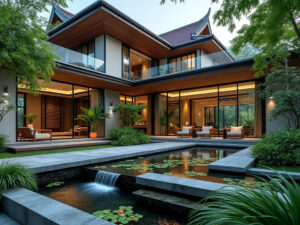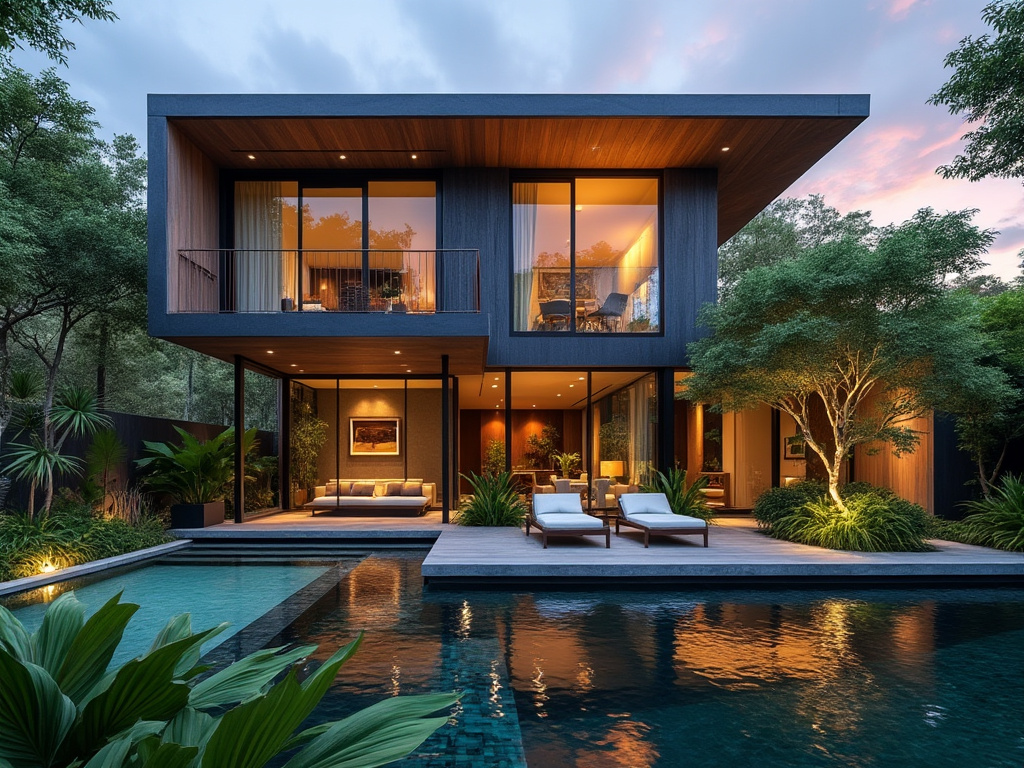How Feng Shui is Reshaping Thailand’s Real Estate
In Thailand, where the whispers of the ancient winds carry secrets of prosperity, the art of Feng Shui has transcended from mere tradition to a pivotal factor in the real estate market. Imagine, if you will, a world where the alignment of your sofa could dictate the flow of fortune into your life. That’s not just the plot of a quirky novel; it’s the reality for many Thai homeowners and investors.
Feng Shui, the venerable Chinese practice of arranging one’s environment to harmonize with the natural world, has found fertile ground in Thailand’s vibrant property market. Here, the right placement of a water fountain or the auspicious angle of your front door isn’t just about aesthetics; it’s about attracting wealth, health, and happiness.
Thai buyers, influenced by centuries-old beliefs, often seek properties that resonate with good chi – the life energy that flows through us and our surroundings. But it’s not just about cultural adherence; there’s a practical side too. Properties designed with Feng Shui principles in mind often see increased interest, leading to quicker sales and, sometimes, higher prices.
So, how can you tap into this ancient wisdom to enhance your home’s value or appeal? Let’s delve into some practical tips:
-
-
The Entrance: Your front door is the mouth of chi. Ensure it’s not only inviting but also free from clutter. A clear path to the door symbolizes an open invitation to prosperity.
-
Water Features: Water is wealth in Feng Shui. A well-placed fountain or even an aquarium can activate positive energy, but beware – the water must be kept clean and flowing.
-
Bedroom Harmony: The master bedroom should be a sanctuary of rest and relationships. Position the bed so it’s supported by a solid wall, not under a beam or window, to promote stability and peace.
-
Kitchen Cash Flow: The kitchen, representing nourishment, should not face the front door directly. This setup is believed to cause wealth to flow out as quickly as it enters.
-
Light and Air: Maximize natural light and ensure good airflow. Bright and airy spaces encourage positive energy and are appealing to potential buyers.
-
To truly grasp the impact, imagine walking through a Thai villa before and after a Feng Shui makeover. Before, the  space might feel cluttered or misaligned; after, it’s like the house breathes with a renewed vigor, each corner echoing with potential. For those intrigued, a video tour with a Feng Shui expert or before-and-after images could serve as a visual testament to this transformative practice. In Thailand, Feng Shui isn’t just about placing furniture; it’s about placing your bets on a harmonious future. And in the real estate game, that’s a bet that’s increasingly paying off.
space might feel cluttered or misaligned; after, it’s like the house breathes with a renewed vigor, each corner echoing with potential. For those intrigued, a video tour with a Feng Shui expert or before-and-after images could serve as a visual testament to this transformative practice. In Thailand, Feng Shui isn’t just about placing furniture; it’s about placing your bets on a harmonious future. And in the real estate game, that’s a bet that’s increasingly paying off.
 space might feel cluttered or misaligned; after, it’s like the house breathes with a renewed vigor, each corner echoing with potential. For those intrigued, a video tour with a Feng Shui expert or before-and-after images could serve as a visual testament to this transformative practice. In Thailand, Feng Shui isn’t just about placing furniture; it’s about placing your bets on a harmonious future. And in the real estate game, that’s a bet that’s increasingly paying off.
space might feel cluttered or misaligned; after, it’s like the house breathes with a renewed vigor, each corner echoing with potential. For those intrigued, a video tour with a Feng Shui expert or before-and-after images could serve as a visual testament to this transformative practice. In Thailand, Feng Shui isn’t just about placing furniture; it’s about placing your bets on a harmonious future. And in the real estate game, that’s a bet that’s increasingly paying off.
(Disclaimer: While the principles of Feng Shui can enhance the appeal and possibly the value of a property, they should be part of a broader strategy that includes location, modern amenities, and market trends.)

